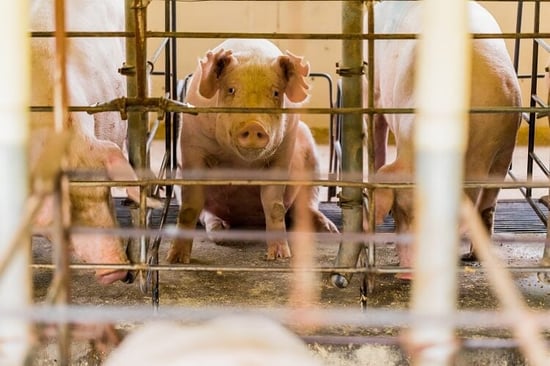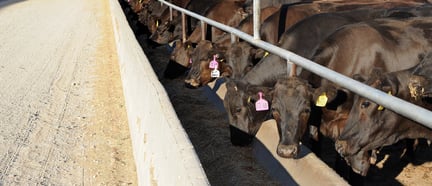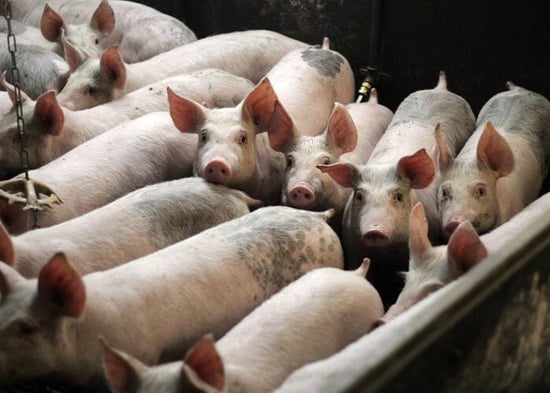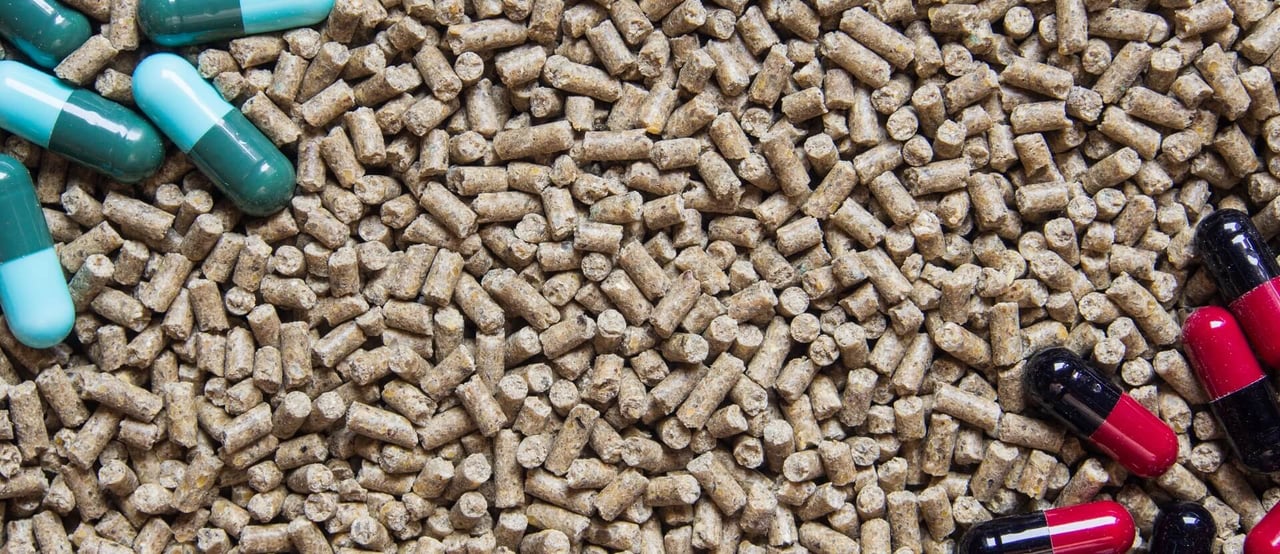
Overuse of antibiotics puts public health at risk
Factory farming
Hero image: KOOKLE/Shutterstock.
Approximately three-quarters of the world’s antibiotics are used in animals, mostly living in miserable and unsanitary conditions on factory farms.
It is estimated that 131,000 tonnes of these antibiotics are used on stressed farm animals to cover up for not providing them with sufficient nutrition, proper care, and space to move around – basic needs of every living being.
Such excessive use of antibiotics on factory farms contribute to the rise of superbugs. Antibiotics should be reserved for use when there is a recognised illness in an animal or in a group of animals.
Superbugs are bacteria resistant to the antibiotics used to treat them. It is predicted that by 2050, superbugs will be responsible for more than 10 million deaths a year.
With your support, we’re calling for Governments to ban the use of antibiotics for the routine prevention of disease.
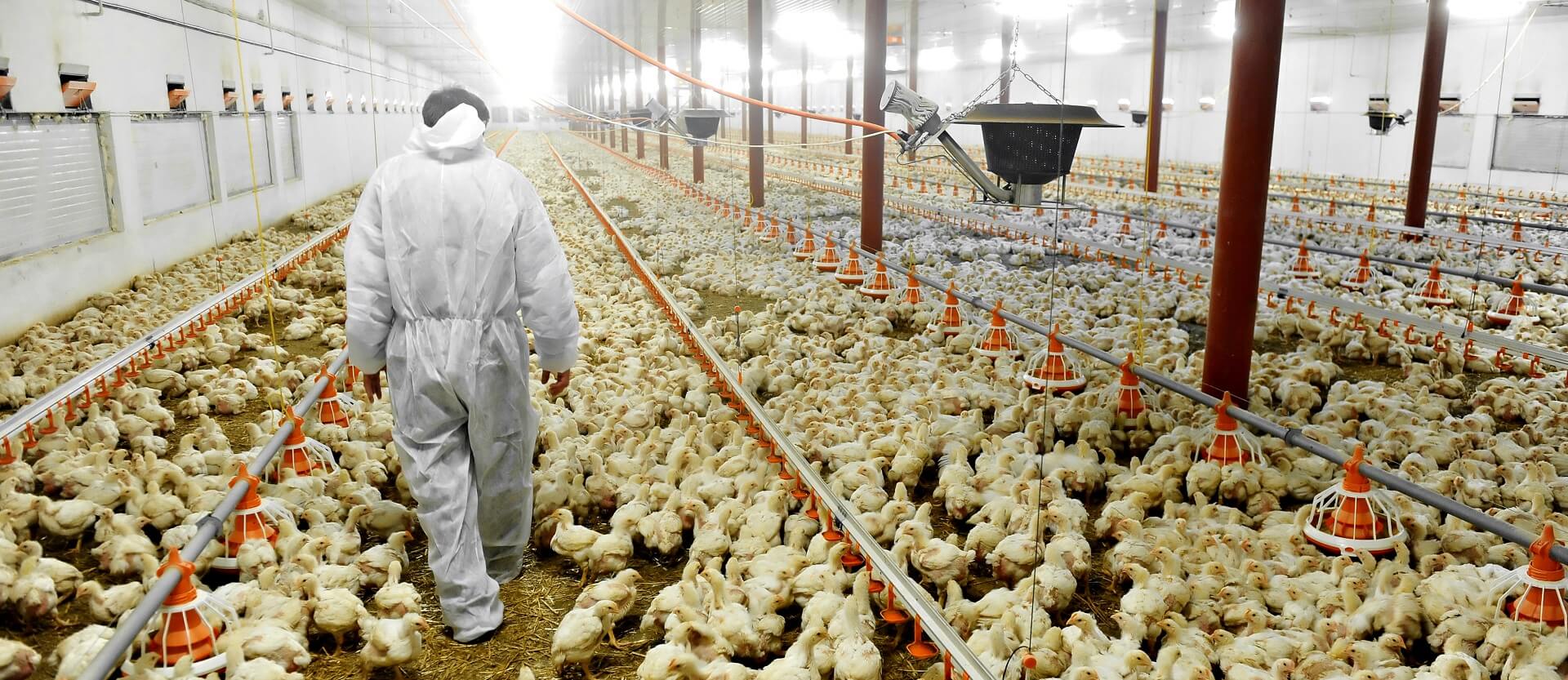
Superbugs
Image credit: iStock / roibu
Superbugs emerge from excessive use of antibiotics in animals
Animals on factory farms around the world are frequently kept in deplorable, low-welfare conditions, typically overcrowded, with no space to display their normal behaviours.
As a result, these stressed animals are more likely to fall ill, to prevent sickness in these poor conditions, antibiotics are often used preventatively to reduce disease risk.
Such overuse contribute to the rapid rise and spread of bacteria resistant to the medicines that cure life-threatening illnesses. These resistant bacteria or ‘superbugs’ are carried off farms via water, air, workers, insects, wildlife, and meat, where they may eventually reach humans.
According to the World Health Organization (WHO), superbugs caused 1.27 million deaths in 2019 due to antibiotics no longer being effective.
The low-welfare conditions that contribute to the rise to superbugs can also cause diseases like bird flu or swine flu to emerge from factory farms and transfer to humans.
One day this could even lead to the next global pandemic.
This is why the transition to eating less meat and a high-welfare global food system is vital, and putting an end to low-welfare factory farms is needed.
Superbug Killers Near You
Our research in four countries across three continents firmly links factory farms, where billions of animals are caged, mutilated and pumped full of antibiotics, to antibiotic resistant genes and superbugs. It is the first multi-country investigation into the problem.
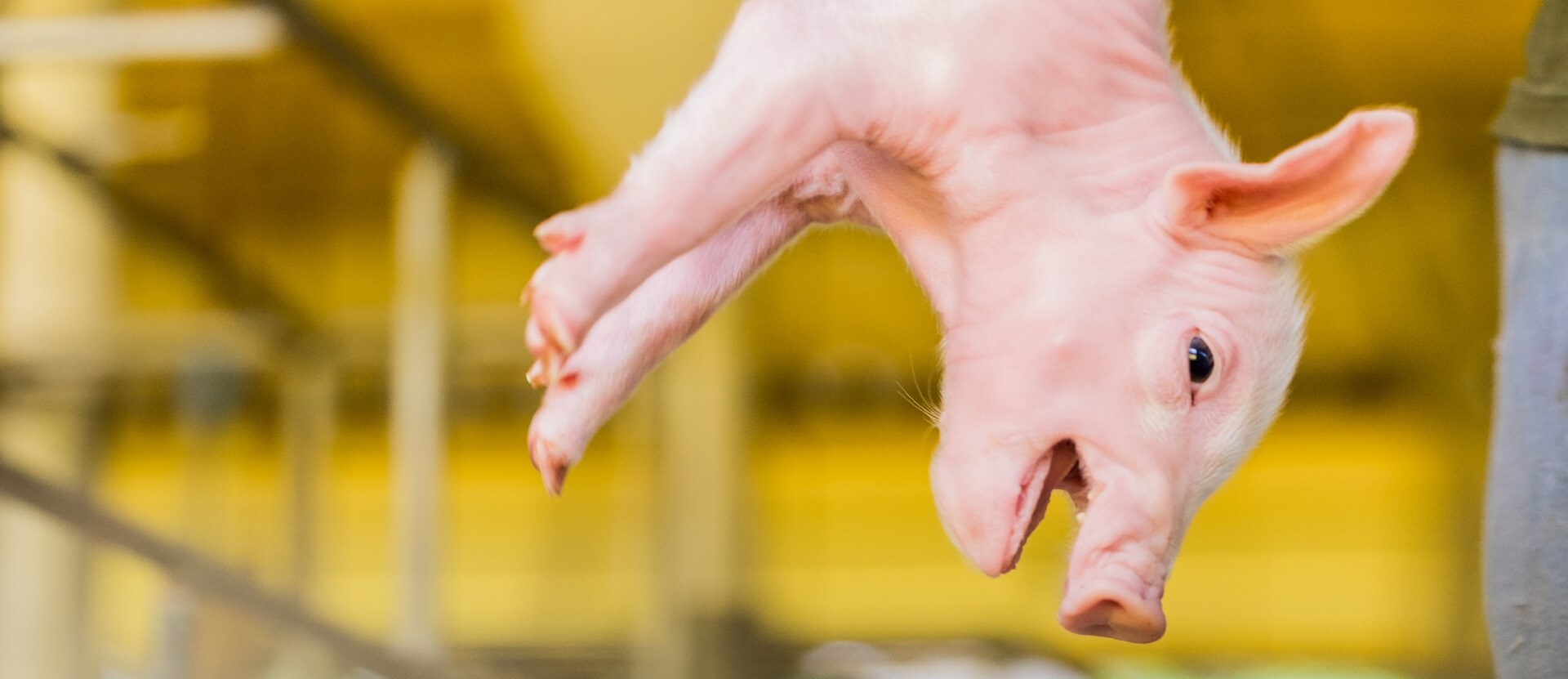
Supermarket meats
Alarming proportion of superbugs found in supermarkets
Our 'Antimicrobial Resistance in Australian Supermarket Meats' report by Monash University raised serious concerns about antimicrobial resistant bacteria in the food chain.
It revealed an alarming proportion of antimicrobial-resistant (AMR) bacteria in beef and salmon purchased from Coles, Woolworths and ALDI stores in Melbourne.
53% of the bacteria detected in beef and salmon had acquired antibiotic resistance, including antibiotics used to treat human infections, which is shockingly as high as the proportion of AMR bacteria found in wastewater (58%).
The rise of superbugs is one of the world's most serious human health threats. According to WHO, they are responsible for 1.27 million human deaths per year, a figure that is expected to rise to 10 million by 2050.
Without effective antibiotics, common infections could be fatal, and we would be transported back to a time before modern medicine. Chemotherapy, heart bypass surgery, hip and joint replacements, organ transplants, dialysis, and caesarean delivery would be extremely dangerous or impossible.
Superbugs found in Australian supermarket salmon and beef
Public health
The bacteria detected had acquired antibiotic resistance, including antibiotics used to treat human infections. Without effective antibiotics, common infections could be fatal, and we would be transported back to a time before modern medicine.
Antimicrobial Resistance in Australian Supermarket Meats
This commissioned research tested the prevalence of antimicrobial resistance in packaged meat from Australian supermarkets. In total, 144 beef and 90 salmon packages were purchased. The samples were all Australian produce.
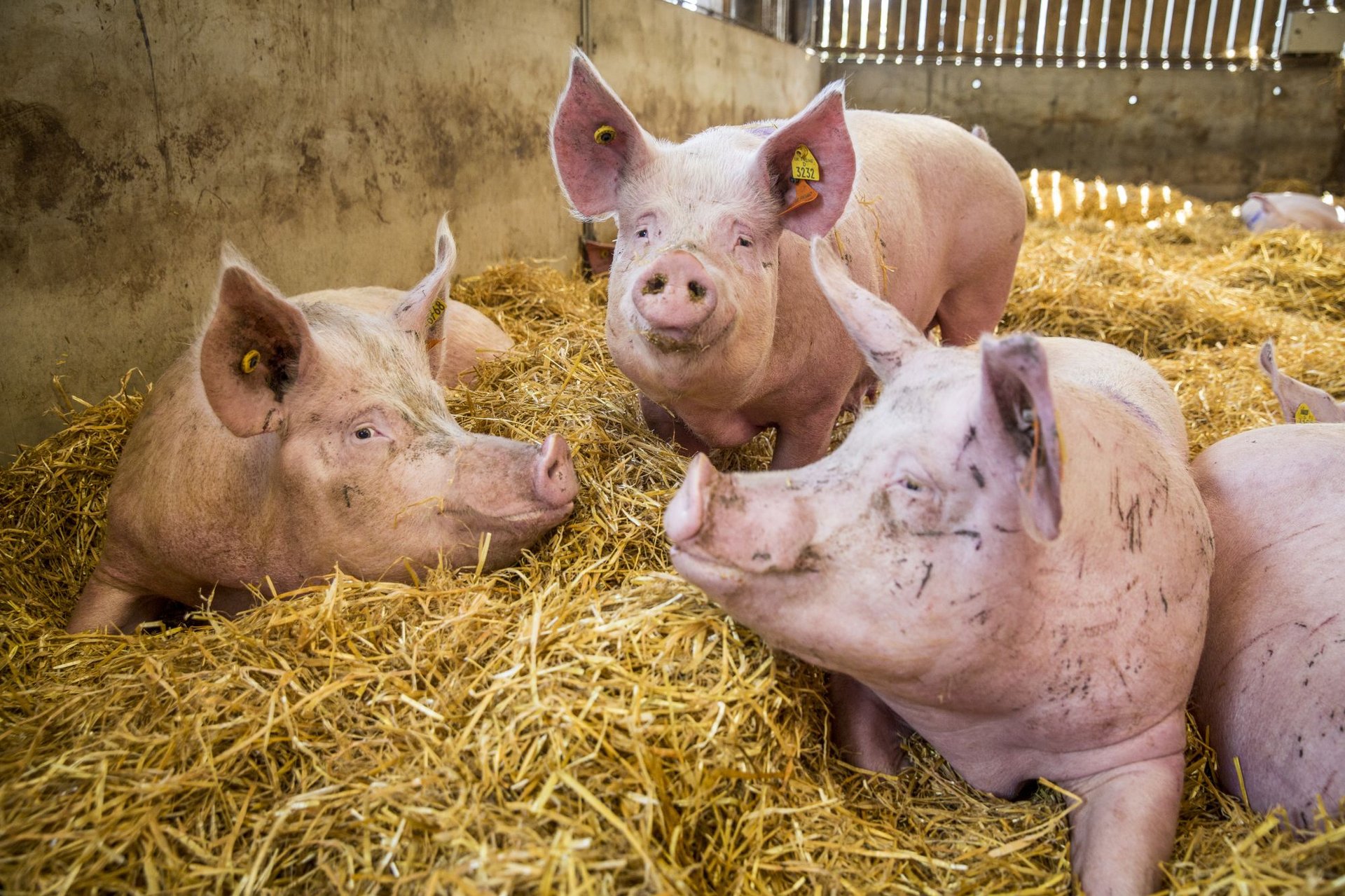
Keep up to date
Join thousands of animal lovers fighting to protect wildlife and give farmed animals good lives. Sign up now to receive emails with all the ways you can help.
Sign up

